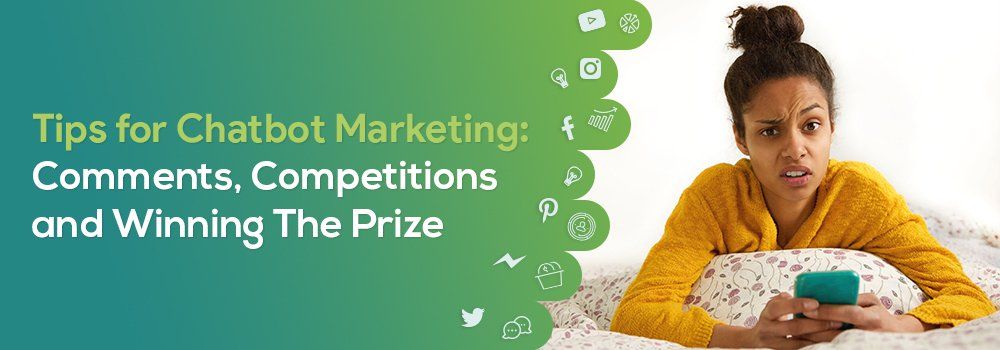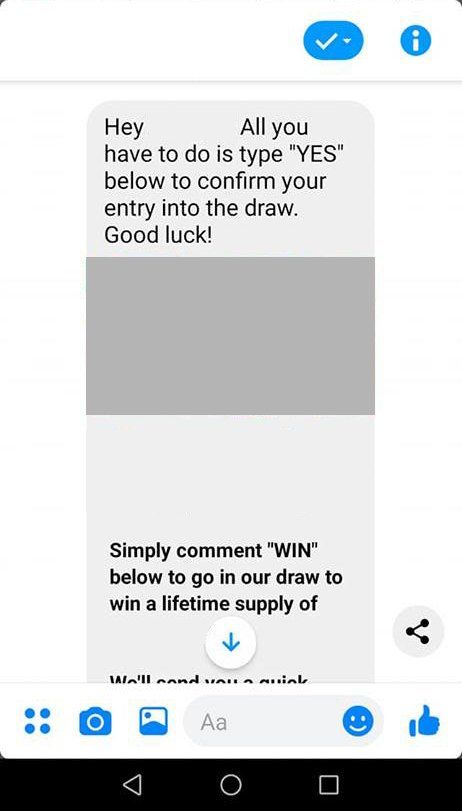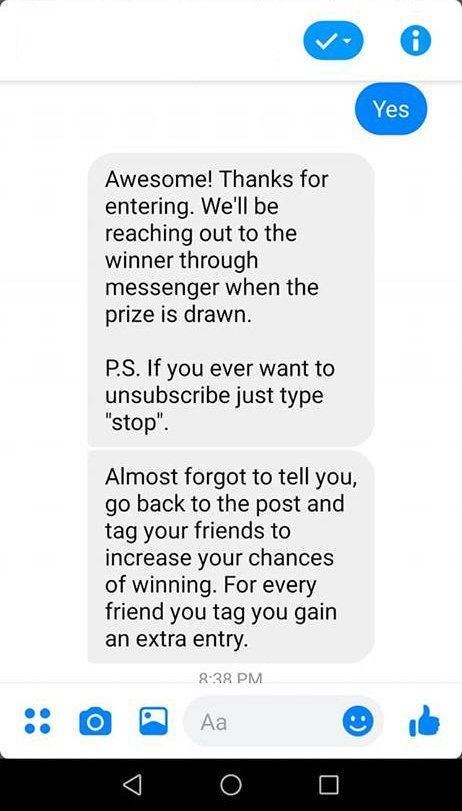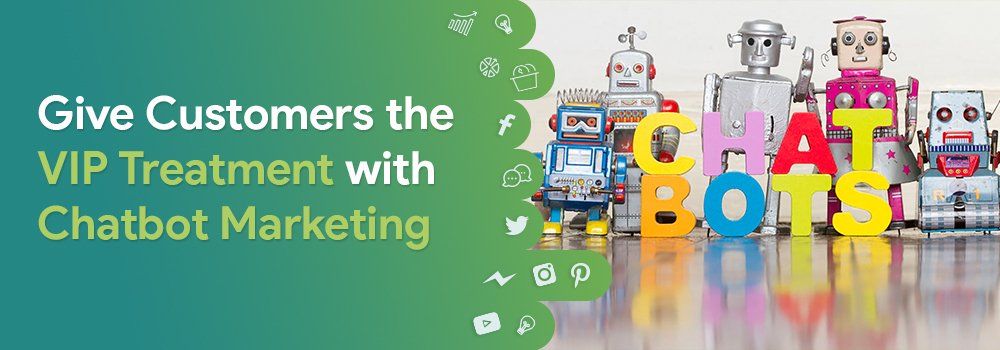
Tips Chatbot Marketing: Comments, Competitions, Winning The Prize
There are many ways to leverage Messenger Marketing as a strategy; and with tools like Manychat or Chatfuel, this makes it easier for anyone to hop on to. But what happens when it is used in conjunction with a competition on Facebook to drive more engagement and awareness of the brand?
Conversational Chatbot Facebook Messenger Marketing
Ok, now that’s a mouthful. For marketers who might think this is a new digital marketing term, don’t panic. It isn’t. But the truth is someone has said this in one breath.
The buzz phrase is Conversational Marketing. Simply, it’s a way for marketers to leverage messaging apps as a vehicle to execute marketing activity. One way is to use chatbots, and the term expands to Messenger Marketing if it’s specific to Facebook.
Now, I can start listing down the different ways to do this but I’d like to focus on a popular one – Chatbot Comments.
A Comment
is Worth a Few More Messages…
Just one comment on a Facebook business page’s post can trigger an automated message, sent to the user via Messenger. The chatbot takes over, and as a policy, the user needs to opt-in by interacting with it through a button or a simple reply.
And the rest of the messages come in.
The marketer now has permission to send more messages and will attempt to converse with the subscriber.
Clever isn’t it? This tactic is widely used and very effective when your objective is to generate leads. It’s also great to move your social media followers to a more personalised space so you can nurture them instead of relying on just numbers. Putting a face (and a name too) on a number is definitely better. You can segment them better and create a more personalised experience.
…and Even a Prize
But, what happens when a raffle prize is used as a sweetener to bring them in and eventually send generic conversations?
I saw a post in one of my many Facebook groups asking about a competition that led her to enter via a private message.

Her post states, “Just entered a competition which required you to write ‘WIN’ in the comments, it then sent a private message wanting you to reply ‘yes’ to confirm your entry. Just wondering if anyone knows the reason behind the need to private message?”
Clearly, it was a chatbot comment tactic and some have chimed in to explain what it was.
By typing the keyword ‘WIN’, this triggered the chatbot to send the first message. If you look at the screenshot, all it asked was her to type in ‘yes’ to confirm her entry.
Marketer – 1. User – 0.
It wasn’t clear that when she types in ‘yes’ that she would also be a subscriber and agrees to receive future broadcasts. It would’ve been good practice to do so. Someone has probably missed the GDPR memo.
One can argue that there she can unsubscribe by typing ‘stop’ but a bit of trust has been chipped off and questions arise.
Tagging and Gaining Extra Entries is Against Policy
Sure, as marketers, Facebook’s policies and current algorithms make it difficult for us to promote competitions. We try to be more creative and some even try to game the system.

If you’ve been in social media marketing long enough, you’d know that it’s against policy to tag a friend to gain entry to a raffle. It states, “Promotions may be administered on Pages, Groups, Events or within apps on Facebook. Personal Timelines and friend connections must not be used to administer promotions (ex: Tag your friends to enter are not permitted).”
The last bit of the message them suggesting to tag a friend on the post to gain an extra entry is questionable and is against the policy since Messenger is a Facebook app.
I would even question how they would know how many entries the person has, or how it assures an increased chance of winning.
Chatbot Annoyance Loses Human Trust
Let’s look behind the scenes, shall we? Since the chatbot is triggered by a comment, in this case, one keyword – win, then tagging a friend won’t trigger new messages. Then the question is how will they count the extra entries? Will this be done manually? A bit of a time-waster, don’t you think?
If it’s set up with no keywords and will allow any comment (including tagging a friend) to trigger the chatbot, then imagine if you have 5,10 or more friends to tag! You’d be receiving the same message over and over and over again. There is also the possibility of just tagging friends in one comment, to avoid getting it numerous times. Which now goes back to my first point – how many entries do you then get?
So, it’s either you realise you only have one entry despite the tagging, or you unsubscribe and block the page from sending you more messages. But, wait! What if you win, and by unsubscribing, don’t receive the notification?
It is quite a conundrum!
Would you trust a business’ chatbot again? Probably. But I won’t be surprised if you’d hesitate the next time you encounter another one.
Prioritise a Good Automated Experience
It’s a shame really since I’m an advocate of leveraging chatbots in marketing: it is powerful and effective. Having an automated digital assistant to help you achieve your objectives is a no-brainer. Unfortunately, some marketers are focused on the short-term gain and miss the whole point of good customer experience.
Here is a technology that will help us scale, get back our time to focus on higher level tasks, and a chance to truly connect with our customers. Yet, we still haven’t changed our mindset on how conversations work in this new form of marketing.
It’s about time we prioritise what matters most – a positive and personalised experience.


